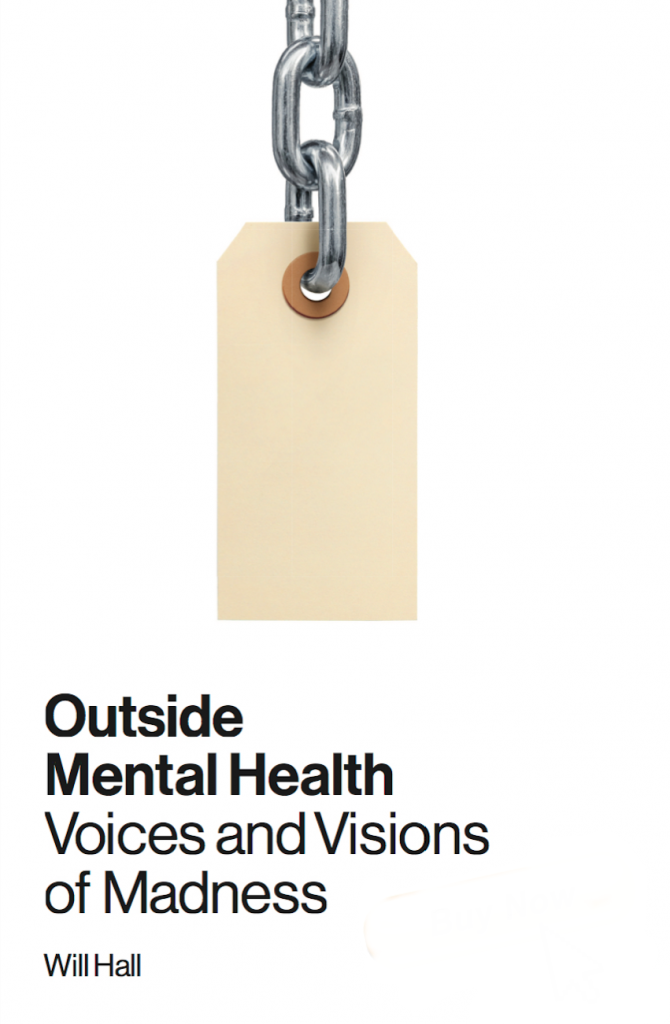Evolving from Jungian psychology, systems theory, and Gestalt therapy, Process Work, or Process Oriented Psychology as it is called in Europe, was developed primarily by Arnold Mindell, a physicist who went on to become a Jungian analyst. Mindell moved to Zurich pursuing his physics studies and, as the story goes, began to research body symptoms and their relationship to dreams after meeting Marie-Louise von Franz, the close student of Jung. Jung himself had died just a brief time before Mindell arrived in Zurich.
At the end of his life Jung was very interested in physics, and held a deep correspondence and collaboration with Wolfgang Pauli. Jung’s intuition was that matter and psyche could be embraced in one scientific understanding as a basic unity, which he tentatively called the “psychoid” archetype. Mindell considers himself an heir to Jung, and his talents as a Jungian analyst were quickly recognized, and he became the youngest training analyst at the Jung Institute in Zurich.
In an era of Gestalt therapy, EST, Neuro-linguistic Programming, psychodrama, strategic therapy, and family systems theory, Mindell borrowed many ideas and methods in his elaboration of Jungian theory. His primary innovation was to expand Jung and embrace body-oriented and present moment methods. Where Jungians discussed, contemplated, and dialogued with the unconscious contents of the psyche, Mindell entered into a direct relationship with it, physically and dynamically. His playful approach was wild and “action oriented,” as he trusted the constantly changing energetic flow of the psyche with greater curiosity and creativity than his Jungian predecessors.
Mindell left the Jung Institute world and founded, with colleagues, his own approach. He expanded into applying his new approach, which he called “Process Work,” into the realms group process facilitation and political process, areas that Jung had explicitly avoided in his emphasis on individual change.
I discovered Process Work out of my own personal initiation into a “non-dual perception of experience.” This is very hard to put into words, but Mindell’s concept of “dreambody” as a single, unified reality-in-flux is deeply resonates with altered and visionary states I have had through meditation, my “psychosis,” and philosophical exploration. Process Work holds a deep consistency with Jungian analysis (Mindell repeatedly emphasizes he is following in Jung’s footsteps) while looking very much like Gestalt in much of its practice – some have said Process Work can be understood as a kind of “Gestaltification” of Jung. Like Jungian analysis, Process Work has an affinity for the paradoxes of Taoism and Zen, and finds meaning and purpose in aspects of self we tend to disavow or become estranged from. Process Work approaches all human experience as containing within it emerging experiential solutions. People are fundamentally creative and in a constant flux through time: parts of us are always moving towards positive change. As Hamlet says, and as so many of the deep mystical traditions teach, “there is nothing either good or bad, but thinking makes it so. To me it is a prison. Well, then it isn’t one to you, since nothing is really good or bad in itself—it’s all what a person thinks about it.” Thinking is of course who we are, and this paradox – overcoming our prejudices to attach to the one and to avoid the other – is the task taken up by much meditation and spiritual practices.
You could look of it this way: we are part of nature, everything has its place, how can we approach life with that understanding, rather than trying to force nature into our own image of what we think is good?
Just as evolution is the constant work of ecological systems on all levels, “individuation” is the constant work of the psyche as a whole. The unconscious – nature – constantly presents us with disturbances, challenges, and symptoms as part of this evolutionary task. As in many spiritual traditions, for Process Work our separate individuality is not the horizon of being; we are instead aspects of a single field that is constantly in motion and, as the great spiritual traditions teach, is fundamentally benign. Our inner worlds reflect outer observation; our imaginal and dreaming selves resonate with ordinary daytime experience; and our identities shift and take on roles with each other as the greater field we are part of moves. Deeply informed by the study of natural systems and self-organizing complexity, this view begins to move towards indigenous and ancestral wisdom so often lost in our mechanistic and technological view of the world and ourselves.
Process Work does not prescribe any diagnostic or formulaic program of change. Instead, it focuses on listening, and carefully attends to the details of the communicative and imaginal signals present in any interaction. By close study and engagement with what is actually happening now, rather than reliance on interpreting what is happening, new information and experience can emerge from the creative self. This is a holistic, dialogical, and experiential approach that may put as much focus on body sensations and movement patterns as it does on verbal descriptions. It relies strongly on imaginal experience — such as dreams, altered states of consciousness, and synchronicities — usually exiled to the margins of consciousness.
For example, when a client says they have difficulties with “depression,” I do not assume I know what that means for them. Rather I notice closely how they describe their depression, and begin an exploration of how that experience is actually uniquely their own, watching carefully for how it emerges in the present moment. By making space for the experience usually labeled “depression” and avoided, the creative aspect of the person can come forth. For one person it may be a struggle with personal wellness and caretaking; for another a conflict with the family; for another buried emotions such as anger or sadness that have not been welcomed in their life; another might find an ancestral longing or social leadership emerging in the very thing that has demoralized and exhausted them. I allow the person’s uniqueness to guide the work, rather than my interpretation. Our usual habit is to avoid exploration of what distresses us, but with curiosity and openness our distress can be met as potential for change and growth.
Having said all this, my approach to Process Work is fundamentally transparent – I am happy to discuss with clients at each moment what my thinking an orientation are, why I am asking or responding in a certain way. I do not believe in the behind-the-scenes manipulation often associated with psychotherapy. In my mind there is no concept or tool in Process Work that cannot be presented and explained in a non-jargon, common sense manner. As I mentioned before, my interest in Process Work and Jung arises directly from my sense of realization of the deeper unity of life. That sense is available and approachable in my relationship with the people I work with, it is not hidden behind technical or clinically specialized language. I consider such a mystification and “academic” or “technical” approach to be at the core of what is wrong with most psychology in the world today.
Like many meditation-based therapies, Process Work cultivates the capacity to slow down and notice what is actually happening, in the smallest detail, as a way of discovering the present moment. Similar to Gestalt therapy, Process Work takes meditation further by trusting and stepping into the energies we observe when we bring our attention to bear. It is an ecological psychology, and approaches mind, consciousness, and emotional experience as the natural and purposeful expressions of an unfolding Earth, and challenges us to participate in this unfolding rather than only assume the stance of observer. Process Work takes dreams to be central to who we are, just as many indigenous traditions found wisdom in dreams. Dreams are the living voice of the earth, our ancestors, and our deepest rootedness in life, speaking to us with urgent messages that ask not an interpretation, but a collaborative relationship. A task I set for myself and with my clients is how to encourage and deepen that collaboration with the deepest dreaming self.
In the tradition of process and pragmatic thinkers such as James, Bergson, Whitehead, and Bateson, Process Work assumes everything is connected and participating in a change process through time, rather than being separate pieces of linked causality with fixed definitions arrived at by outside observation. Following Foucault and Laing, Process Work asks how mental health interpretations and stories are used in their social contexts, not whether they can achieve status of reflecting absolute truth.
While other approaches view a problem as a symptom or a pathology to be eliminated, Process Work shares with Jung the assumption that all aspects of human experience, like all aspects of nature, are teleological — they move towards some meaningful purpose and evolutionary function. Problems have meaning and show us deeper parts we have not yet considered, and can potentially lead us us to greater richness, complexity, and fullness of expression. Depression might, for example, be a part of the individual pushing for a more meditative approach to life, greater freedom to express anger or sadness, a rebellion against oppression, or need for more sensitivity to the body. Because of this openness, Process Work sessions can take widely different forms depending on the kind of interaction taking place, from a role play between parts of awareness not usually in dialog, to inner meditative awareness of subtle feelings and sensations, to expressive movement, artmaking, and storytelling.
Above all Process Work shares with the Taoist and Zen traditions an appreciation for the self-regulating capacity of natural organic systems, including the human mind, and looks to that self-regulation for direction on ways to respond. Nature has a way of expressing itself even in the most difficult moments of human suffering, and by following and trusting nature — not our preconceived view — healing and empowerment can emerge.
At the same time that Process Work embraces and non-dual view, it also has its shadow side. Jungian psychology in general can drift into pathologization and evaluation, a hierarchy of skills and expertise, mystifying jargon, palace intrigue and politics among disciples, aloof elitism, and a personality cult of disciples with special knowledge. Jung famously remarked “Thank God, I’m Jung, and not a Jungian,” emphasizing the dangers of dogma and ideology in any spiritual realization. Like anyone studying a system of thought, people who have studied Process Work may, or may not, have much awareness of these shadow aspects. I hesitate to call myself a “Process Worker;” I prefer to think of myself as just human, and my task is to learn to be more human – not practice a technique or method. I am also much more interested in what people are discovering and learning through their own experience, than their skill or training in following the teachings of another. No system, technique, or skill can ever surpass the capacity of each individual to explore, and gain wisdom, for themselves.
For more information about Process Work, check out books by Arnold Mindell, including Dreambody, Riding the Horse Backwards, and City Shadows. To explore the work of Mindell’s students and their network of schools, go to to www.processwork.org.




